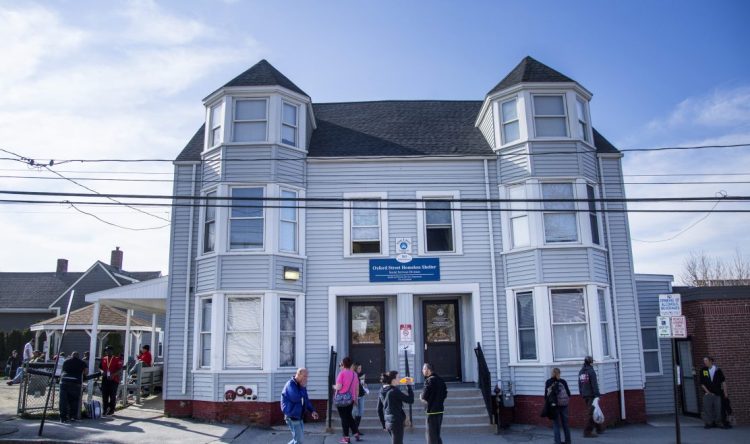The city of Portland opened a 50-bed emergency homeless shelter in the West Bayside neighborhood 29 years ago.
A lot has changed since 1989, but the shelter is still in the same place, a rented two-family house on Oxford Street. Only now, instead of taking care of a couple dozen people every night, it serves hundreds.
It’s long past time to do something about what has become an intolerable situation for our neediest and most vulnerable residents. Homelessness has exploded – not because people lost interest in living in homes, but because the state and federal governments have retreated from their responsibility to provide affordable housing, mental health care and drug treatment.
After years of study, the city has proposed what looks to be a positive step in the right direction: a new facility, on city-owned land, that would combine a 200-bed emergency shelter, meal site and day shelter with an intake operation equipped to connect homeless people with services for employment, health care, drug treatment if needed and permanent housing.
Neighbors of the proposed site, next to the Barron Center nursing home on the Brighton Avenue bus line, have understandable concerns. But no one should rush to oppose the plan without giving it a full hearing. There have been two public meetings, and the process is just beginning. The city and social services providers deserve to be heard.
Much of the opposition to the plan comes from the misconception that the Oxford Street Shelter is the source of an increasing crime problem in Bayside. Critics charge that moving the shelter would result in relocating all the crime from one neighborhood to another.
But both assumptions are unfounded. The presence of the shelter is not the reason that there are crimes of violence, drug dealing and sex trafficking in Bayside, all of which have increased dramatically during the opioid epidemic of the past few years, decades after the shelter was set up. Shelter clients are much more likely to be the victims of those crimes than the perpetrators.
And there is no reason to believe that the criminal population would follow the move. The drug dealers and sex traffickers would no longer be able to hide behind the hundreds of people who have to line up outside the shelter for a bed or at the Preble Street soup kitchen down the block. At the Barron Center site, people seeking help would go inside to be processed. As Police Chief Michael Sauschuck pointed out, there would be no place for the predators to hang out without being noticed.
The Oxford Street Shelter was set up in response to what most people at the time thought would be a temporary crisis. Instead, urban homelessness has become a fact of life throughout the country as rents have skyrocketed and the state and federal governments have shrunk from their responsibilities.
A relocated shelter, no matter how well-designed, will not solve the problem of homelessness. That would take a renewed commitment by government at all levels to work with nonprofits and the development community to build housing in the places where it’s needed for people of modest means, including low-wage workers and people with disabilities.
But the long list of people who are responsible for homelessness does not include homeless people themselves. Denying them humane services won’t make the problems go away – it just makes them worse.
The world has changed since 1989, and it’s long past time for Maine’s approach to homelessness to change, too.
Send questions/comments to the editors.


